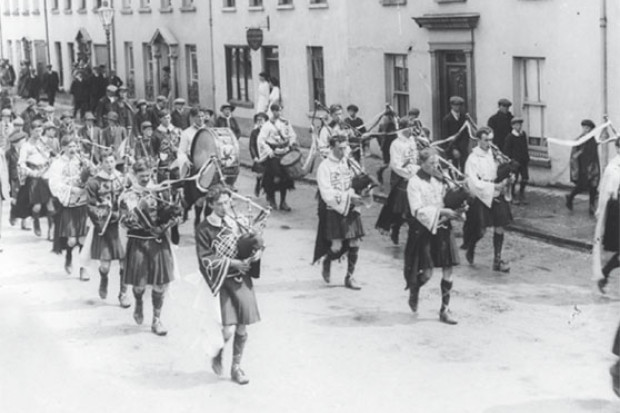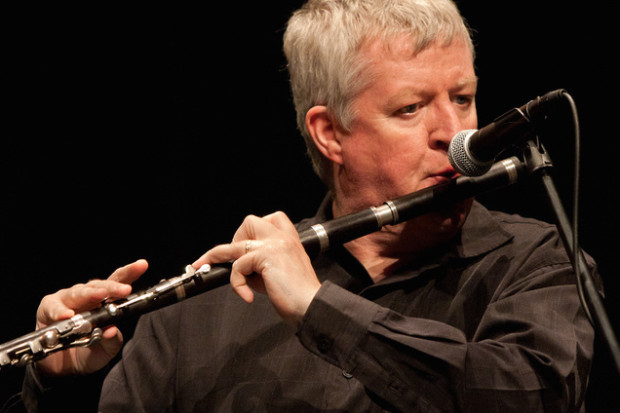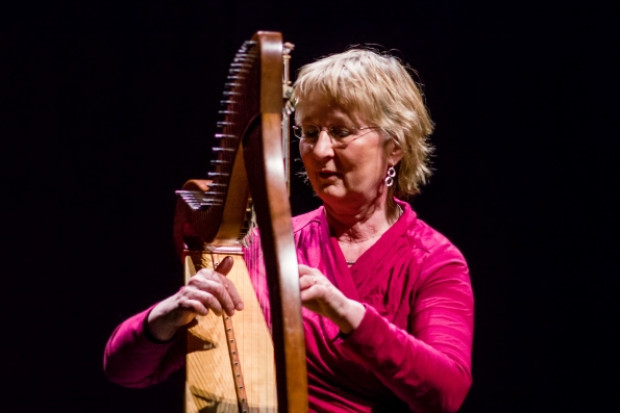Editorial: Critical Reflection
As the many Irish music festivals taking place this summer begin to devise their programmes of events, it will be interesting to see whether any take the initiative of furthering the debates that have surfaced in this magazine. Not that JMI presumes it should set the agenda for these events, but it would certainly supply some continuity to the generally poor state of debate on music in Ireland were festivals to pick up where some JMI debates have left off. Why not pit Hammy Hamilton and his theory on ‘The Myth of Irish Traditional Music’s Popularity’ against someone who holds an opposite view? What about asking John Moulden to expand his views on ‘The Future of Irish Traditional Singing’ into a full lecture and bring together a panel to discuss his suggestions? Will there be a forum anywhere in the country for a public discussion of the new musician/singer/poet union, FACÉ, as outlined by Steve Cooney?
One should not be too surprised, however, if none of this happens. The period of debate in the mid-90s that climaxed with the Crossroads Conference in 1996 has dwindled and, with nothing in the vicinity to seriously threaten the calm, it’s business as usual. In any case, the prevailing argument is that traditional musicians have little appetite for formal debate and their antipathy towards it is illustrated by the fact of its absence.
But how water-tight is this theory? Has there ever been a real attempt to create a culture of critical reflection in traditional music? A quick survey of its history would suggest not. Is it not reasonable to suggest, therefore, that since there has in fact never been a collective national attempt to improve the critical culture, all speculation and theorising on why it doesn’t exist may be a red herring, simply plying us with excuses for not actually doing something about it?
Fintan Vallely recently speculated on this subject in his Sunday Tribune column (3 February), which he has since suspended in order to take up a research post. Ruminating on the significance or otherwise of his column over the previous three years he writes:
Were these 125,000 or so words read by those within traditional music circles? No one knows, but news in print travels slowly in a social layer where music-making and engagement rather than consumption of secondary products are supreme.
Despite his suspicion that his column may not have been seriously engaged with, rather than objecting to the black hole Vallely suggests that it may be an intrinsic part of the sociology of (Irish) music. But upon what is this conclusion based? With all due respect to Vallely’s achievements – as one of the organisers behind the Crossroads Conference and editor of The Companion to Irish Traditional Music – it will take much more than all our efforts so far to sufficiently test if Irish traditional music is terminally anti-intellectual.
But what, for example, are we to make of such pronouncements as that of traditional singer and song-collector Sean Corcoran, who in Traditional Music: Whose Music?, a collection of lectures from a conference in Northern Ireland held in 1991, said: ‘This is a fairly unique conference, the first of its kind; hopefully not the last. Normally these topics are debated by musicians themselves in the back rooms of public houses, or sitting on a wall at a Fleadh… or else they are debated by academics among themselves. So, this is unique…’. Yet a single paragraph later, after this distinctly upbeat and positive nod towards developing debate on traditional music, he tells us that if one were to ask ‘What is Traditional Music?’, ‘the best way to find out … is to stay around until this evening when the concert is on and you can hear the real thing. Theory can never match practice.’ So why then, if the purpose of discussion on music is to ‘match practice’, have a conference or give a lecture at all? Why the apprehension about embracing critical debate? Is it the case that traditional musicians fear appearing too ‘intellectual’? But why?
Surely a community of musicians with such a rich and sagely heritage should be mature enough to recognise the natural law that there are practical implications for what is going on inside our heads. In formal debate and discussion, participants may not simply be seeking to have everything tied down and put in neat boxes, but could in fact be taking part for the pleasure and satisfaction of the process of debate itself, as a method of honing and refining the rough seeds of ideas that they themselves have.
Mary Cullen, a former Senior Lecturer in Modern History at NUI Maynooth, recently wrote:
For whatever reasons, few of us in Ireland show much confidence in our ability to engage freely with new or opposing ideas, and we seem to feel threatened by the possibility of having to change or even modify our opinions. We appear to have low levels of intellectual curiousity or of delight in teasing out ideas, testing their strengths and weaknesses, entertaining and exploring new points of view, moving on and developing our thinking.
That this country may have an unsympathetic view of intellectual debate would be one obstacle to our creating a culture of formal critical reflection in traditional music. The other obstacles are practical – the lack of periodicals, talks, seminars, debates, discussions on radio and television programmes, and book publishing. But these are surely not beyond us, given that much of the infrastructure is already in place. What, for example, is stopping Lyric FM from producing a weekly half-hour discussion programme on issues in music?
Whatever about the potential, some recent news could, if not acted upon, further strengthen the views of those who think that Irish traditional music is hopelessly incapable of creating a culture of critical reflection. The latest Awards book from the Arts Council provides the traditional music community with a unique opportunity, and one would be hard pressed to come up with a stronger signal that it is time to put the fatalists’ theories to test. On page 10 there is an unprecedented paragraph entitled ‘Traditional Arts’, which states:
The Council is particularly anxious to find the most effective ways of supporting traditional music and we expect to see greater participation in all our awards schemes by traditional musicians. We are interested particularly in apprenticeships and in creative proposals for residences. In addition to the new professional development and training awards, we intend to develop other ways of supporting traditional musicians.
And then on page 46 one can read about an entirely new initiative entitled the ‘Critical Reflection Award’, which ‘aims to broaden and inform critical debate in the contemporary arts’ and which concludes on the following note: ‘The Council is interested in receiving proposals during 2002 which deal with the development of critical thinking, reflection and debate on traditional music.’ No other art form is singled out as traditional music is. Similarly on page 74, under the ‘Music Publications and Recordings Scheme’, there is mention of supporting traditional music publications in particular.
This initiative not only demonstrates an awareness of the complete lack of development of critical writing and thinking on traditional music in this country, but also the fact that it is an intolerable situation for a country such as Ireland, whose music is so acclaimed worldwide, to be so bewildered by the aesthetics of its native musical art that it doesn’t dare publicly discuss them.
The question is, who will take up the Arts Council’s offer?
The deadline for applications for the ’Critical Reflection Award’ is 19 April and application forms/information sheets are available from the Council (Tel: 01-6180200/E-mail info [at] artscouncil.ie).
Published on 1 March 2002
Toner Quinn is Editor of the Journal of Music. His new book, What Ireland Can Teach the World About Music, is available here. Toner will be giving a lecture exploring some of the ideas in the book on Saturday 11 May 2024 at 3pm at Farmleigh House in Dublin. For booking, visit https://bit.ly/3x2yCL8.












